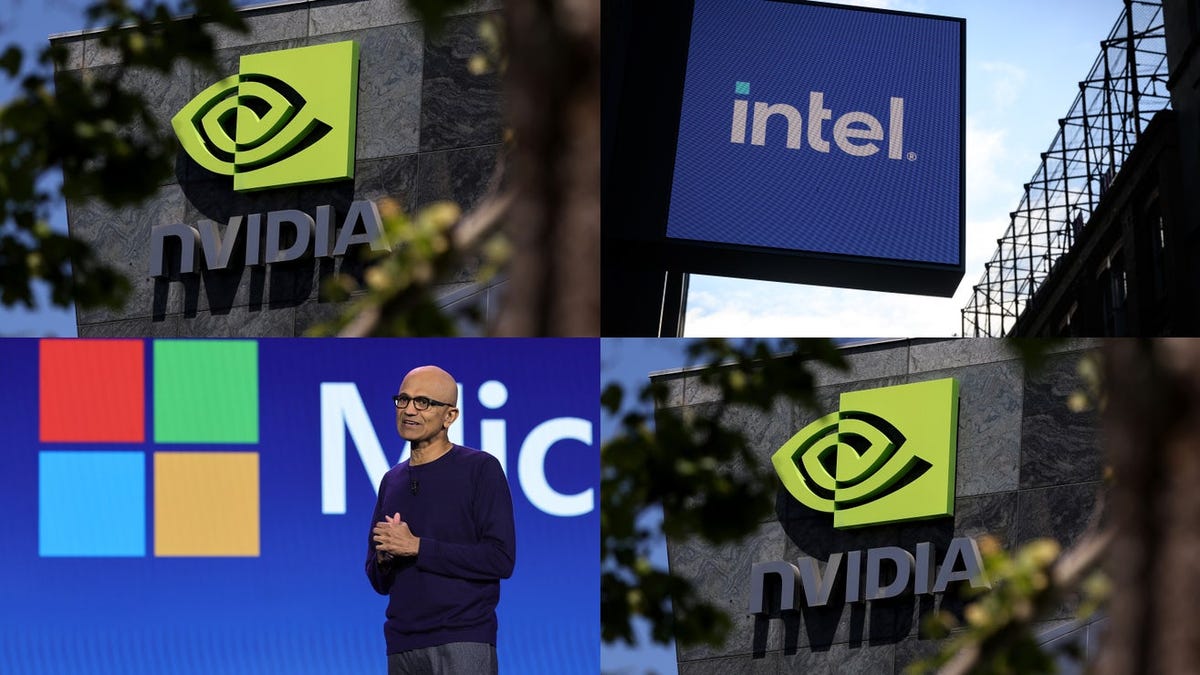The most innovative companies in business services for 2025
These 10 companies provide vital services for businesses at every life cycle stage, from birth to death. Whether facilitating communications with customers, scaling operations, or reducing friction in the marketplace, honorees in the business services category of this year’s most innovative companies help companies grow and thrive—or even perform last rites when that moment finally arrives.In an increasingly post-literate world, companies continue to turn to video to communicate with key stakeholders, and two of this year’s business services honorees help enterprises produce streamable content more efficiently. As part of its ongoing efforts to infuse its products with AI-powered capabilities, Adobe released a new tool that transforms still images into video in less than two minutes, guided only by text prompts. Another honoree, HeyGen, launched a streaming avatar that enhances real-time interactions, creating more useful chatbots and tutors.Several of the honorees on this year’s list provide tech solutions that can help organizations scale. It’s been three decades since companies began reinventing themselves to remain competitive in the emerging digital world; now they face a similar challenge to harness the power of artificial intelligence. Working closely with Nvidia, Dell Technologies created its AI Factory to help companies navigate their AI transformations without ceding control of sensitive data.Six-year-old Lightrun launched a new debugger that is the first AI-powered tool of its kind, automating the entire debugging process and freeing developers from the endless tedium of troubleshooting. Smartling‘s new AI-powered toolkit reduces translation turnaround times while delivering accurate results for companies engaged in global commerce.As the cannabis industry continues to boom, LeafLink introduced a first-of-its-kind platform that guarantees payments to brands based on retailer sell-through, improving cash flow for companies that are often operating on challenging margins. Pattern (the only repeat honoree from last year’s business services list) introduced a new service that helps ecommerce companies navigate the tricky “middle mile” of the fulfillment process. And SimpleClosure takes the top spot in the category for addressing a challenge no founder ever likes to contemplate: closing a business.1. SimpleClosureFor simplifying the onerous task of shutting down a startupNearly half of all startups fail within their first five years. Loggerhead sea turtle hatchlings have a better chance of reaching the surf than founders do of celebrating their first anniversary. Israeli entrepreneurs Dori Yona and Nimrod Ram, serial founders who have navigated both successful exits and painful closings, launched SimpleClosure in 2023 to streamline the process of shuttering a business that fails, which more than half a million do each year.Leveraging fintech, legal tech, and AI, its platform automates much of the regulatory paperwork, final payroll distributions, and investor communications that traditionally take months and cost as much as $75,000 to execute—drudgery that can keep entrepreneurs from moving on. SimpleClosure, which has raised $5.5 million from investors, spent the past year developing its platform, creating a system of integrated technologies that reduces corporate dissolution time from months to days.Today, companies of all sizes, from mom-and-pop shops to venture-backed unicorns, are using SimpleClosure’s platform. (They pay a one-time fee based on the complexity of their structure.) Yona says companies only need to spend 10 or 15 minutes to onboard, uploading bank statements and HR data. The platform then ingests additional information from public state databases and delivers a personalized shutdown plan. Working on referrals from a range of top law firms, VCs, accounting firms, and partners like Stripe Atlas and Carta, SimpleClosure helped shutter more than 500 companies in 2024, ending the year with a run rate in the high seven figures. “Products grow when they are actually good and they solve customer pain points,” Yona says. “We’re building the TurboTax of shutting down.”Read more about SimpleClosure, honored as No. 47 on Fast Company’s list of the World’s 50 Most Innovative Companies of 2025.2. Dell TechnologiesFor helping organizations integrate AI into their operationsOver the past 30 years, businesses have invested trillions of dollars to undergo the digital transformation of their operations. While we are still in the early days of the subsequent AI transformation, 2024 global spending on AI infrastructure reached nearly $14 billion, a six-fold increase over the previous year. In May 2024, Dell launched its AI Factory, a new service designed to help businesses and organizations harness and scale their own AI initiatives. What differentiates Dell’s platform from many of its competitors is that it’s a hybrid solution: Rather than existing exclusively or primarily in the cloud, AI Factory int

These 10 companies provide vital services for businesses at every life cycle stage, from birth to death. Whether facilitating communications with customers, scaling operations, or reducing friction in the marketplace, honorees in the business services category of this year’s most innovative companies help companies grow and thrive—or even perform last rites when that moment finally arrives.
In an increasingly post-literate world, companies continue to turn to video to communicate with key stakeholders, and two of this year’s business services honorees help enterprises produce streamable content more efficiently. As part of its ongoing efforts to infuse its products with AI-powered capabilities, Adobe released a new tool that transforms still images into video in less than two minutes, guided only by text prompts. Another honoree, HeyGen, launched a streaming avatar that enhances real-time interactions, creating more useful chatbots and tutors.
Several of the honorees on this year’s list provide tech solutions that can help organizations scale. It’s been three decades since companies began reinventing themselves to remain competitive in the emerging digital world; now they face a similar challenge to harness the power of artificial intelligence. Working closely with Nvidia, Dell Technologies created its AI Factory to help companies navigate their AI transformations without ceding control of sensitive data.
Six-year-old Lightrun launched a new debugger that is the first AI-powered tool of its kind, automating the entire debugging process and freeing developers from the endless tedium of troubleshooting. Smartling‘s new AI-powered toolkit reduces translation turnaround times while delivering accurate results for companies engaged in global commerce.
As the cannabis industry continues to boom, LeafLink introduced a first-of-its-kind platform that guarantees payments to brands based on retailer sell-through, improving cash flow for companies that are often operating on challenging margins. Pattern (the only repeat honoree from last year’s business services list) introduced a new service that helps ecommerce companies navigate the tricky “middle mile” of the fulfillment process. And SimpleClosure takes the top spot in the category for addressing a challenge no founder ever likes to contemplate: closing a business.
1. SimpleClosure
For simplifying the onerous task of shutting down a startup
Nearly half of all startups fail within their first five years. Loggerhead sea turtle hatchlings have a better chance of reaching the surf than founders do of celebrating their first anniversary. Israeli entrepreneurs Dori Yona and Nimrod Ram, serial founders who have navigated both successful exits and painful closings, launched SimpleClosure in 2023 to streamline the process of shuttering a business that fails, which more than half a million do each year.
Leveraging fintech, legal tech, and AI, its platform automates much of the regulatory paperwork, final payroll distributions, and investor communications that traditionally take months and cost as much as $75,000 to execute—drudgery that can keep entrepreneurs from moving on.
SimpleClosure, which has raised $5.5 million from investors, spent the past year developing its platform, creating a system of integrated technologies that reduces corporate dissolution time from months to days.
Today, companies of all sizes, from mom-and-pop shops to venture-backed unicorns, are using SimpleClosure’s platform. (They pay a one-time fee based on the complexity of their structure.) Yona says companies only need to spend 10 or 15 minutes to onboard, uploading bank statements and HR data. The platform then ingests additional information from public state databases and delivers a personalized shutdown plan.
Working on referrals from a range of top law firms, VCs, accounting firms, and partners like Stripe Atlas and Carta, SimpleClosure helped shutter more than 500 companies in 2024, ending the year with a run rate in the high seven figures. “Products grow when they are actually good and they solve customer pain points,” Yona says. “We’re building the TurboTax of shutting down.”
Read more about SimpleClosure, honored as No. 47 on Fast Company’s list of the World’s 50 Most Innovative Companies of 2025.
2. Dell Technologies
For helping organizations integrate AI into their operations
Over the past 30 years, businesses have invested trillions of dollars to undergo the digital transformation of their operations. While we are still in the early days of the subsequent AI transformation, 2024 global spending on AI infrastructure reached nearly $14 billion, a six-fold increase over the previous year. In May 2024, Dell launched its AI Factory, a new service designed to help businesses and organizations harness and scale their own AI initiatives.
What differentiates Dell’s platform from many of its competitors is that it’s a hybrid solution: Rather than existing exclusively or primarily in the cloud, AI Factory integrates Dell’s on-premise AI servers, allowing companies to configure their AI infrastructure in ways that enable them to maintain more control over data. Dell co-developed its AI Factory with Nvidia, marrying Dell’s PowerEdge servers, storage, and networking with Nvidia’s powerful AI GPUs.
Samsung SDS, McLaren Racing, and Elon Musk’s xAI are utilizing AI Factory, and AI platform Hugging Face named Dell its preferred on-premises infrastructure provider. The Dell AI Factory can reduce setup times by up to 86%, while enhancing privacy and reducing latency. From Q1 to Q2 2024, following the launch of AI Factory, Dell reported a jump in AI server sales from $1.7 billion to $3.1 billion, and at the end of 2024, it reported full-year sales of about $10 billion. The company’s overall 2024 revenue of $95.6 billion represented an 8% increase over the previous year.
3. Adobe
For bringing commercially safe generative-AI magic to video
More than 90% of global businesses employ video in their marketing efforts. Average production costs range from $1,500 to $7,000 per video minute, putting a huge strain on annual budgets. In February 2024, as part of the ongoing expansion of its generative AI-powered Firefly platform, Adobe released a beta version of its new Video Model to the public.
As is the case with Firefly Image—first released to the public in 2023; the latest version, Firefly Image 3, came out in April 2024—the Video Model is trained exclusively on licensed or public domain imagery. The new tool creates videos out of still images, guided by text prompts, in less than two minutes. Adobe has begun integrating its Video Model into Premiere Pro, which has a global user base of 30 million people, 47% of whom work for large companies.
In addition to its Video Model, Adobe introduced a range of features to other key products in 2024, including a “distraction removal” tool that uses AI to excise unwanted elements from photos, an expansion to its Generative Workspace that creates high-resolution images more quickly and facilitates work involving multiple elements, and an AI assistant that provides a conversational interface to guide users through Adobe’s Experience Platform.
4. LeafLink
For making B2B cannabis payments more mellow
The legal cannabis industry continues to grow like, well, a weed, increasing from less than $1 billion a decade ago to about $40 billion today. Conservative estimates predict a total U.S. market of more than $76 billion by 2030. In 2016, LeafLink launched as a marketplace to connect brands with retailers and streamline the ordering process.
Over the intervening years, the company has introduced increasingly sophisticated fintech tools to facilitate invoicing and expand payment options. In September 2024, LeafLink launched a first-of-its-kind payment option that guarantees payments to brands based on retailer sell-through, improving cash flow and reducing financial risks for both parties. Payment on Sell-Through (PoST) allows brands to receive automated payments upon the sale of their products, eliminating the cumbersome and time-consuming process of manual collections.
Brands also benefit from detailed insights into product performance. More than 70 customers have integrated PoST into their operations. In November, the company introduced LeafLink Plus, a subscription-based platform that provides cannabis retailers detailed data insights into their inventory and operations. In July, LeafLink completed a $125 million funding round backed by CPMG, Nosara Capital, L2 Ventures, Thrive Capital, and Tiger Global. That same month, the company acquired Dama Financial, a fintech company focused on the cannabis industry, and then in November, LeafLink acquired one of its competitors, Leaf Trade.
5. HeyGen
For building a video bridge across the uncanny valley
As businesses increasingly rely on videos to engage customers and communicate with employees, HeyGen provides an economical AI-powered platform that helps them create text-to-speech explainer-style videos featuring AI avatars and spokespeople. Building on the Interactive Avatar it released at the end of 2023, HeyGen launched its Streaming Avatar in July 2024, which enables real-time interactions that enhance the avatar’s usefulness as a chatbot or tutor.
Like its predecessor, the Streaming Avatar can communicate in 175 languages, switching from one to another in mid-conversation. HeyGen’s 2024 advancements also introduced real-time video translation tools that preserve the speaker’s voice and style, as well as new integrations like PowerPoint-to-video conversion that streamline content creation.
Even users of the free tier can now create a personalized “digital twin” avatar in a matter of minutes. HeyGen’s million-plus users number more than 40,000 monthly subscribers, and corporate customers have included McDonald’s, Salesforce, and the Weather Channel. The company’s pricing begins at $24 per month for individual creators, with business subscriptions starting at $89 per month. HeyGen reports it has doubled its annual recurring revenue to $35 million. In June, the company completed a $60 million funding round led by Benchmark, with participation from Thrive Capital, Bond, Conviction, and a number of individuals, including Dylan Field, CEO of Figma.
6. Lightrun
For automating the debugging process for developers
Founded in 2019, Lightrun is a developer-centric observability platform. What that means, in plain English, is that it allows software developers to monitor their applications while they are running, helping them to see how their code performs in real-time and making it easier to spot and fix problems quickly.
In July 2024, Lightrun launched its Runtime Autonomous AI Debugger, the first generative-AI-powered tool of its kind. It automates the entire debugging process, from identifying bugs to specifying the precise line of code creating the issue. This frees up developers caught in the endless cycle of troubleshooting and reduces down time that can have serious consequences in all businesses but catastrophic ones in healthcare, finance, and public infrastructure.
Lightrun says its new platform has improved mean time-to-repair rates by 70% across industries where it’s been deployed. The tool is being used by such heavyweights as Citibank, AT&T, Salesforce, Microsoft, UnitedHealth Group, and SAP. Lightrun says it grew its revenue by a factor of 4.5 in 2024. In July, the company completed an $18 million funding round led by GTM Capital with participation from previous investors Insight Partners and Glilot Capital Partners.
7. Pattern
For helping online sellers navigate the middle mile
You’re probably familiar with phrase “last mile” to describe the complicated—and expensive—final stages of delivering a package from distribution center to customer. But there’s also a “first mile” (from factory or origin to warehouse) and a “middle mile” (from warehouse to distribution center).
In March 2024, Amazon introduced a new “inbound placement policy,” changing the rules and fee structure of managing shipping in a way that altered the economics of the middle mile and threatened to put a serious crimp in the margins of sellers. Previously, brands had shipped their product to the nearest Amazon fulfillment center, and Amazon then distributed product to other fulfillment centers closest to customers.
But beginning in March, brands had to begin paying $0.27 to $1.58 per unit to ship to the closest Amazon fulfillment center or else figure out how to get its packages to a location closer to the final customer. Pattern saw an opportunity to save money for brands (and generate additional revenue for itself) by helping them get their goods to Amazon. The e-commerce accelerator is one of the most prolific shippers in the Amazon universe, with 1,400 employees in 22 countries and 14 global distribution centers.
Its new middle-mile service allows brands to ship goods to one of Pattern’s warehouses. The company then harnesses trillions of data points to determine how to parcel out packages most efficiently to the optimal Amazon fulfillment center, charging brands about half what they’d have to pay Amazon. Pattern says it has been profitable since its founding in 2013, with five-year revenue growth of more than 270% and trailing 12-month revenue of nearly $1.8 billion.
8. Smartling
For helping online stores and other websites eliminate language barriers
The Translation Management Systems (TMS) sector is booming, growing at an estimated 17% annually. As e-commerce, digital content, and other companies expand globally, they have to translate media, product descriptions, marketing materials, and customer support in consumers’ native languages.
This past year, Smartling introduced a series of innovations to solidify its position as a leader in the TMS space. The company’s AI-powered human translation tool combines AI, large language models, and human expertise to deliver faster translations at lower costs.
And in May 2024, the company launched an AI Translation Toolkit that reduces turnaround times while still delivering accurate results. A new set of AI-powered quality assurance tools released in November streamline the production process, and a data access and visualization module (also released in November) allows clients direct access to their translation data so they can connect it with business intelligence tools like Tableau, Power BI, or Looker.
Smartling’s revenue reached a reported $39.7 million in 2024, a 90% increase over 2023, with translation volumes up 30% year over year. Companies that use Smartling include Pinterest, Shopify, SurveyMonkey, Walgreens, InterContinental Hotels Group, and Accenture.
9. Gigs
For helping businesses launch their own mobile phone networks
Over the past quarter century, mobile cellular subscriptions have ballooned from about 300 million to more than 9 billion—meaning there are more mobile subscriptions than there are humans on the planet. To take advantage of our heightened connectivity, more and more companies (currently about 2,000) have become mobile virtual network operators, or MVNOs.
MVNOs lease network capacity from operators like AT&T or T-Mobile and resell the services to consumers, offering branded phone plans that can include discounted rates and various other benefits and discounts. Gigs is not an MVNO, but since its founding in 2020, the telecom-as-a-service company has been making it easier for enterprises to create their own mobile networks with a platform that streamlines the process.
In March 2024, Gigs launched a critical new component of its MVNO-in-a-box platform: Tax Engine analyzes the myriad tax requirements of different states and automatically calculates the tax burden to simplify billing. Another new product launched in 2024 integrates seamlessly into enterprise-level HR tools, making it easier for companies to create corporate phone plans that operate across more than 50 countries.
In October 2024, Nubank—Latin America’s largest fintech bank, with more than 100 million customers—harnessed Gigs to launch its MVNO, called NuCel, which offers integrated services, such as global connectivity for travelers. In December, Gigs announced completion of a $73 million funding round led by Ribbit Capital. Other investors included Google’s Gradient Ventures and Y Combinator.
10. Alethea
For helping companies detect security risks from misinformation and disinformation campaigns
Misinformation is a huge threat to business. Two years ago, a fake Eli Lilly Twitter account announced the company would begin providing free insulin, leading to a 4% drop in share price—more than $13 billion in market cap value. Starbucks, Pepsi, Blackrock, and Kay Jewelers are just a few of the companies that have suffered from misinformation campaigns in recent years.
Lisa Kaplan, a fellow at George Mason University’s National Security Institute, founded Alethea in 2019 to combat disinformation and social media manipulation. The company’s flagship product is an AI-powered tool called Artemis that leverages advanced analytics and machine learning to detect misinformation threats in real time. The platform launched at the end of 2023, and last year it added the ability to detect threats across a wider array of sources, including niche social media platforms and extremist organizations.
Artemis scans the open web, analyzing billions of data points across multiple languages to detect early signs of cyberattacks, disinformation campaigns, and influence operations. The platform delivers its insights to company communications and security teams. A series of exclusive 2024 Alethea reports on Russian disinformation and influence operations prompted coverage in The New York Times, The Washington Post, Axios, and other prominent news outlets.
Given the nature of its service, Alethea does not reveal specific customers, but it says it added four Fortune 200 companies last year. In April 2024, the company completed a $20 million funding round led by Google Ventures. Since then, it has hired executives from major companies like Apple, Microsoft, and Tesla, and over the last three years, it has sustained a better than 400% increase in annual recurring revenue.
Explore the full 2025 list of Fast Company’s Most Innovative Companies, 609 organizations that are reshaping industries and culture. We’ve selected the companies making the biggest impact across 58 categories, including advertising, applied AI, biotech, retail, sustainability, and more.



![How to Find Low-Competition Keywords with Semrush [Super Easy]](https://static.semrush.com/blog/uploads/media/73/62/7362f16fb9e460b6d58ccc09b4a048b6/how-to-find-low-competition-keywords-sm.png)




























































































































































































